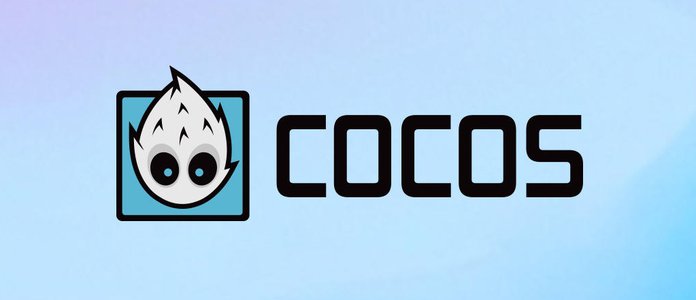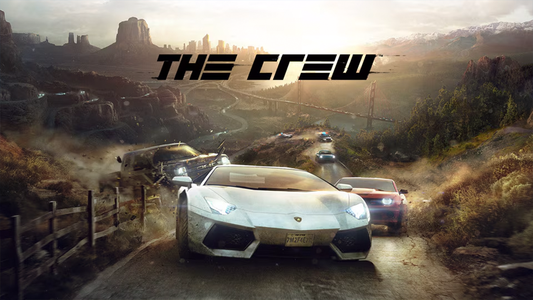Ryan Letourneau is a big name in video games right now, although if you're not particularly interested in the YouTube scene, the chances are you may not have caught his work. Known as Northernlion on YouTube, Letourneau has over 320,000 subscribers on YouTube, and is one of the biggest video game YouTubers to date. His videos are part game criticism, part Let's Plays, and plenty of episodic content. He also livestreams on Twitch, where he has over 60,000 followers and 6.7 million views. With the YouTuber scene exploding right now, Gamasutra's Mike Rose sat down with Letourneau to discuss where the scene is headed, how it compares to the traditional press, and where YouTubers should stand on topics like ethics and coverage. Rose: You must talk to lots of devs these days. What do think of the general shift that has occurred whereby YouTubers are now as important, if not more important, than getting written press on your game. What is going on right now? Letourneau: If you compare it to what it was like a couple of years ago, a lot of developers didn't really know that there was this huge YouTube gaming sphere. A lot of them did - a lot of them are proactive. Two years ago was not even that long ago in the grand scheme of things, even with the fast-moving industry.
"Publishers would be asking how many uniques I had, or what my Alexa rank was. And I was like, 'Beats me!'"
So it took a little bit more convincing of being like "This is what I do, and I'm not just a kid trying to snag a copy of a free game off you." I'd say two years ago, 100 percent of the games that I covered were games that I talked to developers for. Now, the vast majority of games I cover... I get way more volume of emails to cover a game than I do actually go out and proactively solicit games. I think developers are way more aware of the power of the industry, and the fact that you're probably more likely to get coverage if you cast a really wide net and contact 150 YouTubers, versus if you only contact 20 standard websites that all pretty much cover the same stuff. There's a little bit more variety of some extent, and more likelihood that you're gonna get covered by someone of some notoriety I guess. There's definitely deliberate initiative to talk more to YouTubers. Almost every developer that I talk to is very aware of that kinda side of things. Rose: Yeah, I've talked to several developers about it, and a few of them said that they'd been getting press coverage for their games at fairly reputable places, and they'd seen little spikes in traffic or sales. Then they'd get covered by someone like NerdCubed, and they'd see the traffic or sales doubled just from that video. It kinda casts getting written press for your game in a crazy light now. But then developers told me that they still feel like written press is just as important, as they feel like it's more reputable. A lot said they are able to quote written press and say "this site has written about me" and link it, whereas with videos and YouTubers, they don't feel like they can do that so much, especially with smaller YouTubers. Letourneau: Yeah it's weird. If you look at Steam's store pages for example, the vast majority of the quotes in the reviews sections for those are GameSpot, IGN, PC Gamer, stuff like that. Part of the issue there is that they're prestigious and known names - way more people know the name IGN than they know the actual writers who work there. Most people who read those sites treat them as a brand, which is fine. But if you look at individual YouTubers, there's hundreds or thousands of them, and it's impossible to follow all of them and know what all of them do. And they all have names like Northernlion or TotalBiscuit, that don't necessarily tell you what they do. I'm not surprised for stuff like that. Those names have been around forever, and they carry a lot of clout, whereas I think there's still this perception that it's like, those are companies, while people like myself are hobbyists. It carries less prestige. Rose: It's interesting that I guess when someone decides to be a YouTuber, it can look a little bit more like someone sitting down and playing a game, taking a video while talking over it, and that might seem like a harder sell for building up reputations, getting review copies etc, compared to someone who is writing about it. Is that the kind of obstacles you were finding to begin with? Letourneau: There are some times when I think I should just start up a blog and do text transcripts of my first impressions style videos, because people take it more seriously. And for a while, especially a couple of years ago, publishers would be asking how many uniques I had, or what my Alexa rank was. And I was like, "Beats me!" Or they were like, "Are you on Metacritic?" And it's funny to see sites that get, like, 1,000 hits a day getting super early access to games from big publishers thanks to these PR policies, because they're on Metacritic. And that makes a lot of sense! If I was a publisher, I'd likely do the same thing. But they wouldn't talk to many YouTubers. That's sort of reversing now. There's still a prestige thing about it. Very rarely when there's a controversy in print or online games journalism, do you have people saying "Get a real job, writing isn't a real job!" So YouTubing does still have the stigma of being a hobby. But I think it's become more legitimized depending on what you kinda do within the sphere, as the audience for it keeps growing. Rose: Do you think that Metacritic will start taking video into account? Letourneau: It seems like it would make sense given the trends, that so many people treat YouTubers as relevant, trustable sources. But I don't know how they would do it. That's a problem that I think requires a very creative solution, because you can't reliably be Metacritic, and say "We're going to watch 100 videos that are half an hour long each, and sort through and gauge where we think it is." Because rarely do videos even have scores attached to them that they can use. So it might be a little tricky. I'd love to see it happen, because that's still such a dominant force in the industry that really determines who has influence. But I would be surprised if it happened. Rose: I can imagine it could actually work out badly, in that if Metacritic were to say "We'll include videos, but only if they have scores," then you'll start getting YouTubers putting scores on, and then you'd viewers skipping to the end of videos trying to find the scores, and then you guys would have the same issues as us! Letourneau: Yeah! And you know, "time watched" is something that's really important on YouTube. Nobody really knows the exact specifics of how Google calculates its search algorithms and rankings and stuff like that, but they've basically said in what's called "The YouTube Creator Playbook" [PDF] , which is tips on how to be successful on YouTube, that the time watched and user engagement is super important when it comes to ranking videos. If two videos have the same factors, then the time watched can actually be a major thing.
"I don't think the traffic from Metacritic would be that important... I think if people go to sites like that, they want [written] reviews."
So in some ways not having a score is advantageous there. And if you cut together an actual video review it'd be four minutes long, and it's a lot easier to get people to watch a four minute long video than it is a 40 minute long video. So there's positives and negatives on both sides I guess. [Additional note: I contacted Marc Doyle at Metacritic shortly after my chat with Letourneau to get his thoughts on whether or not Metacritic plans to add YouTubers and video reviews to its scoring system, especially given that so many YouTubers are more highly regarded that some of the written outlets pulled for scores on Metacritic. Doyle responded with, "Thanks for the opportunity, but I don't have a comment at this time."] Letourneau: What I will say is that I don't think the traffic from Metacritic would be that important. I already see YouTubers embedding their videos in Steam reviews all the time. There's always some YouTubers who's like, "Here are my thoughts on the game" and it's embedded on Steam, and they'll have like 80 or 90 views. I think if people go to sites like that, sometimes they want reviews... but I don't think they actually want to watch a video to get the thoughts. Rose: Yeah, from my limited understanding of where people are coming from to visit YouTube videos, it always seems like the two main factors are how many subscribers a person has, and generally a video being passed around, rather than a video being embedded in a specific website. Letourneau: Yeah I agree. The stuff that I do is not really very viral for the most part. Rose: You do a lot of episodes of games, right? Letourneau: Yeah, probably like a third of what I do could be lumped under standard game criticism, except I don't actually finish the games. I play for a few hours and then record thoughts. Two-thirds of what I do is episodic content. Rose: I just do not get episodic video series at all, or why people would want to watch video games in that format. This is just a personal thing obviously, but clearly people like it since so many watch it. Letourneau: I totally understand. I watch very little episodic gaming content, even though I make a whole bunch of it. Maybe I watch so little because I make a whole bunch of it. But when I have leisure time, I'll sit down and watch Breaking Bad or a movie or read a book. So it's weird to me as well, and I'll look on YouTube and be like whoa, 15,000 people watched me play Tropico 5, that's crazy! But I do get it, because when I was a little bit younger I watched a ton of gaming content. For me, the influence came from Giant Bomb, who were doing things like Quick Looks and their Endurance Runs. So I wouldn't say I've grown out of them, but I'd say I just don't have as much free time for them. So I understand it. Rose: So you've mentioned that a lot of devs get in contact with you now. What are a few main points that immediately come to mind when devs are getting in contact with you? Letourneau: So I don't cover Kickstarters anymore, and a lot of the stuff that I get in my email is about Kickstarters. Previously, a decent number of games would have a playable pre-alpha demo, and if the game was noteworthy, maybe I'd cover it. I maybe did it half a dozen times I'd say.
No tags.





































